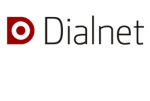Researcher profiles
It is increasingly important for researchers and professionals to have a public profile that functions as a cover letter and allows easy access to contact information and brings together the publications to which they want to give visibility. The digital identifiers that are generated can be used to identify the author in successive publications, to disseminate their scientific production on various networks or platforms, or to present applications for grants or evaluation processes.
The researcher profiles allow the author: to unify his signature as a researcher (name and surname and institutional affiliation); gather all his scientific production, grouping the publications regardless of the name variants used and the institutions in which he has worked, differentiating him from other researchers with the same or similar name; enhance the visibility and dissemination of its scientific production; and provide bibliometric data (citations to their publications, h-index).
 ORCID
ORCID
ORCID is an identifier composed of 16 digits and based on the ISO 27729: 2012 standard, Information and documentation – International Standard Name Identifier (ISNI), which allows researchers to have a persistent and unambiguous author code to clearly distinguish their academic production.
This open, non-profit initiative, supported by the main publishers (Nature Publishing Group, Elsevier, Hindawi …) and research institutions (CERN, MIT, CalTech …), aims to guarantee the unequivocal distinction of the academic production of researchers and be an effective method to link the research activities referenced in different information systems.
 ResearcherID
ResearcherID
Unique identifier for researchers, linked to the publications collected in the Web of Science. It is not an identifier that is automatically generated from the publications collected in the Web of Science. The investigator must register individually with ResearcherID. It allows incorporating articles that are not in the main collection of the Web of Science (WOS), although in that case it will not include citations. It can be synchronized with the ORCID and data exchanged between the two identifiers.
 Scopus Author ID
Scopus Author ID
Scopus is an international multidisciplinary database, produced by Elsevier, containing more than 22,000 journal titles, including references cited since 1996. Scopus assigns a unique identifier to each author who has publications listed in the database.
Scopus Author Identifier allows to unify, under a single signature, the different names (and the corresponding documents) with which an author appears in the Scopus database. It also allows you to discriminate between different authors with the same name. It can be synchronized with the ORCID and data exchanged between the two identifiers.
 Google Scholar Citations
Google Scholar Citations
Author profile associated with Google Scholar data. You need to have a Google (Gmail) account and register. It allows you to collect all the publications that appear in Google Scholar and collect the citations to your works.
 Dialnet
Dialnet
It is the largest portal for scientific information in Spanish, with special emphasis on the Humanities and Social Sciences: more than 9,000 journals and more than 4 million documents, offering great visibility for thesis.
All Dialnet authors have a unique identifier (Dialnet author code) and their own author page where all the information available on Dialnet is collected.
By clicking on an author’s name from any Dialnet page, we will access his author page, where, in addition to his work, information is offered on: institution to which he belongs, areas of knowledge, publications on Dialnet, other author identifiers.
The author search engine is only available for users of Dialnet Plus.
Publons
Publons is a company founded in 2012 and acquired in 2017 by Clarivate Analytics. It currently integrates 260,000 users who collaborate in review and editing works with some 25,000 journals from publishers such as SAGE, Oxford University Press, Springer Nature, WileyAmerican Psychological Association, Cambridge University Press, Taylor and Francis or Wolters Kluwer, among others.
It is a virtual platform that registers, validates and makes scientific reviews visible, allowing the creation of profiles for reviewers, editors and journals in relation to the reviews carried out, also allowing the reviews to be exported to their ORCID profiles; and offering reviewers to accredit those works reviewed and validated by the platform through the creation of PDF reports.
ResearchGate
ResearchGate is a social network for researchers. Online research and collaboration platform, totally free, designed for the cooperation and exchange of scientific knowledge in the world. Aimed at students, teachers and researchers in any field.
Currently there are more than one million active members in it, who use the platform to communicate and leave comments, share and discuss scientific issues, actively participate in scientific congresses and events as well as find new employment opportunities and graduate programs. It is also a tool to help researchers to publish their research and to promote its dissemination throughout the world. Offers the option of creating scientific profiles, discussion groups, post search, and self-archiving.
Academia.edu
Academia.edu is an academic social network that connects researchers, grouping them by entities, departments and topics of interest. Provides access to full texts, specialized mailing lists and job offers. The researcher can create a web page about his research, post works, search for colleagues through Facebook, Linkedin and Gmail and follow the work of other researchers.
Mendeley
In addition to being a manager of bibliographic references Mendeley is a social network that allows you to have a public profile as a researcher in which you can include contact information, interests, training or work experience, information that is included in the Mendeley web platform. In addition to public groups and profiles, it also allows you to follow other researchers to contact them.

